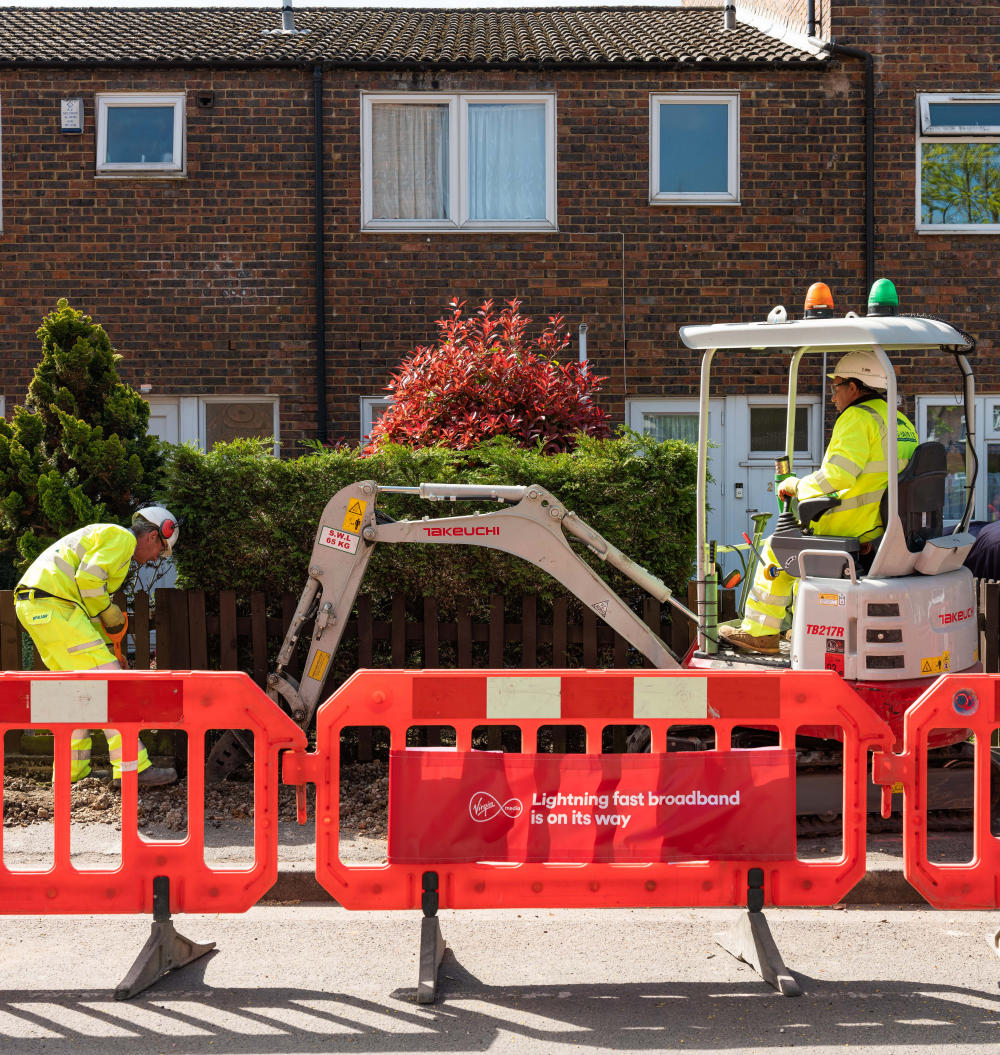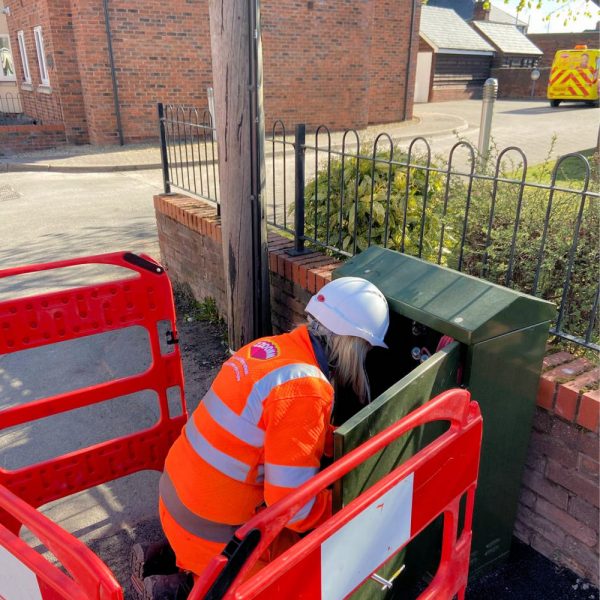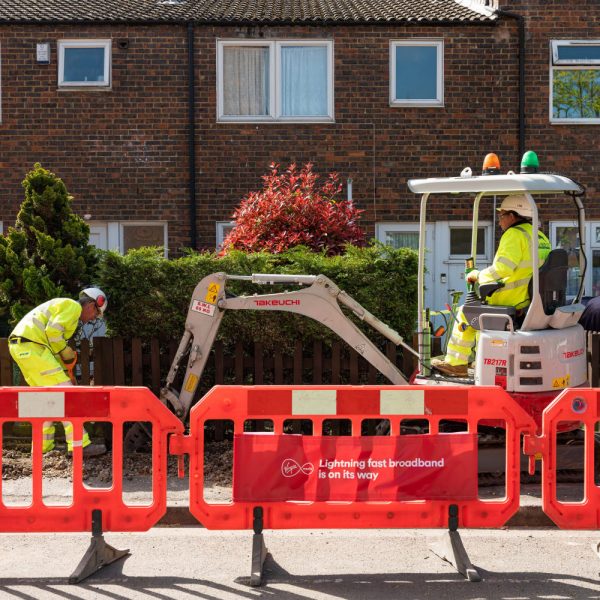Over 1 in 3 UK Home Movers Suffer Unexpected Broadband Setup Delays
The Citizens Advice agency has claimed that over 1 in 3 people who moved house during the past two years has suffered an “unexpected delay” in getting their broadband working, with some facing a delay of more than 2 weeks. The charity demands that ISPs pay compensation for such delays.
The survey itself was carried out by YouGov via an online interview of 2,009 adults (i.e. those who had moved to a new address within the last 2 years), which was conducted between 6th March to the 15th March 2017. The survey found that the most common broadband problems experienced by people who transferred or setup a new service when they last moved house are the connection being slow or unreliable when initiated (15%), engineers having to make multiple visits (11%) and engineers’ appointments being rescheduled (9%).
On top of that 8% of people who tried to set-up broadband in their new home received a router that did not work properly and 5% hadn’t received one at all (it’s unclear if this was intentional due to the package choice because not all ISPs bundle a free router). Citizens Advice is thus calling for Ofcom to put in place the mandatory scheme it proposed earlier this year for automatically compensating people affected by delayed set-ups or repairs to their broadband or landline (here).
The regulator’s proposed system would require subscribers to be compensated to the tune of £6 for each calendar day of delay beyond and including the promised activation date. An alternative voluntary proposal from BT, Sky Broadband and Virgin Media is believed to have pushed for the lower figure of £4 per day (here).
Gillian Guy, CEO of Citizens Advice, said:
“People paying to have their broadband set-up all too often face big set-backs.
Moving house can be a difficult and stressful experience and delays in getting the internet can make this worse, if providers fail to keep to promised dates or engineering visits don’t materialise. Broadband is now such an essential service that people moving house will often rely on it for crucial tasks, like changing their address for household bills or ordering essentials.
It is fundamentally unfair that in some cases customers are paying for a service they don’t receive for weeks or even months at a time after moving. Ofcom has rightly proposed a scheme that would automatically compensate customers who face delays or missed appointments, regardless of their provider – but this is now at risk of being watered down by a rival industry proposal that would be voluntary and lower the amount paid out by at least £52 million.
To hold providers to account for breaking promises to their customers, the regulator should move forward with its mandatory automatic compensation scheme. This would make it clear to people what they are entitled to when they get poor service and put an end to customers having to negotiate how much they get back for their wasted time.”
Apparently some people who decided to switch providers, often after becoming frustrated at having had no broadband for weeks following their house move, were also told that they would have to pay exit fees of hundreds of pounds to switch to a different service. We note that some ISPs offer a 14 day cancellation period but if the problem lasts longer then that can create a dispute over exit fees when you try to leave.
Ideally people should never be charged if the ISP has failed to provide the contracted service within a reasonable timeframe; although sometimes delays do occur (often these occur because of problems with a supplier like Openreach, rather than the ISP itself). In this sort of situation it’s usually best to wait for the problem to be resolved because switching ISP might not fix it, particularly if the same suppliers are involved.
Complications can also arise if people fail to answer the door when an engineer arrives. This is surprisingly easy to do because they often don’t hang around for very long, which is tricky if you’re using the toilet at the time. Sometimes an engineer may also go to the wrong address and fail to realise, which can result in the customer being unfairly blamed.
House movers may also suffer other complications, especially if the previous occupant hasn’t cancelled their service quickly enough or neglected to cancel it at all. Similarly new build homes can also face the challenge of simply being recognised as existing (i.e. sometimes it can take months for databases to recognise your new address). Suffice to say that these and many more issues can play havoc with service provision and often aren’t the ISP’s fault.
Ofcom has already proposed that ISPs should pay £30 for a missed engineer appointment (ISPs have proposed a figure of closer to £20), although as above it could be difficult to correctly apportion responsibility for such delays. In other situations there may be unavoidable faults with the network, which have to be resolved before the new service can be put live (e.g. no spare ports at the cabinet or a damaged cable).
Andrew Glover, Chair of ISPA, said:
“Moving home can be a stressful undertaking and while the transfer of a broadband service might not seem to be a high priority task, I would advise home movers to notify their providers early on to ensure a smooth transfer.
Early notification will also reveal the few cases where it might not be possible to transfer a service because the provider or technology chosen by the consumer is not present in the area the customer is planning to move to. In such cases, just as with other contracts, such as gym membership, a contract termination might be necessary and this could come with an early termination charge.”
Most of the service transfers for home movers are done without a problem and Ofcom indicates that the clear majority of consumers are generally happy with their service. However, when things go wrong, the industry agrees that customers are entitled to compensation and we are working with Ofcom to implement an automatic compensation policy that recognises the dynamics and complexities of the UK broadband market and provides compensation levels that are in proportion to the generally low prices for broadband services in the UK.”
We should clarify that it’s normal to expect a wait of a couple of weeks or more when you order a new line and broadband provision, which is often required when moving house (the ISP should give you a clear activation date). The delays being discussed above are thus largely related to issues that occur beyond this activation date; at least we hope the survey has made that key distinction.
Elsewhere the latest data from Openreach (BT) states that the operator completes 94.91% of its new line installs on time (up from 93.93% last year) and it currently takes an average of 8.2 working days to install a service when no engineer is required (e.g. FTTC self-install) or 12.16 days if you need an engineer to visit.
Sadly we don’t know how other networks, such as Virgin Media, perform because they are not held to the same standard.
Mark is a professional technology writer, IT consultant and computer engineer from Dorset (England), he also founded ISPreview in 1999 and enjoys analysing the latest telecoms and broadband developments. Find me on X (Twitter), Mastodon, Facebook and Linkedin.
« Alternative UK ISP Voneus Says Fast Broadband is a Basic “Human Right”
Latest UK ISP News
- FTTP (5524)
- BT (3518)
- Politics (2540)
- Openreach (2298)
- Business (2264)
- Building Digital UK (2246)
- FTTC (2044)
- Mobile Broadband (1975)
- Statistics (1788)
- 4G (1666)
- Virgin Media (1621)
- Ofcom Regulation (1463)
- Fibre Optic (1395)
- Wireless Internet (1389)
- FTTH (1381)
























































Comments are closed